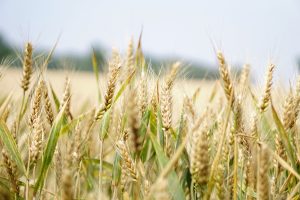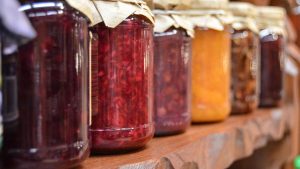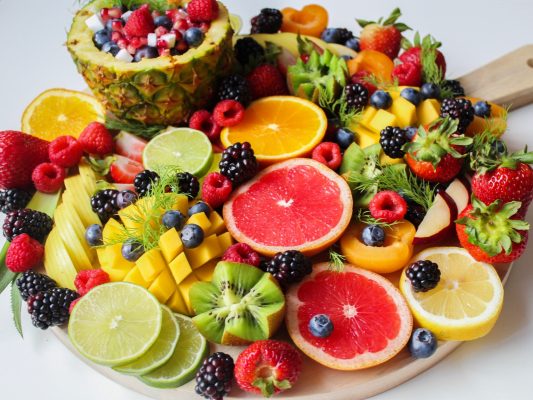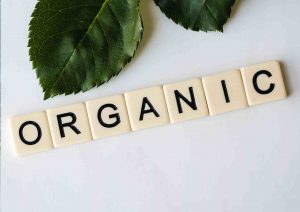Organic food grows without the usage of synthetic chemicals such as fertilizers, insecticides, pesticides, and GMO’s (Genetically Modified Organisms). When you eat organic foods, you can rest assured that they do not contain artificial flavors, colors, and preservatives. It is free from a bunch of synthetic chemicals that should not be present in our food in the first place, and hence, is better for our overall health.
Given the high standards of organic farming and meat production, organic food is generally more expensive than conventionally produced food. Making a complete shift from a conventional diet to an organic diet can therefore be quite an overwhelming task.
However, small efforts, one step at a time, can help you eat organic foods even on a budget.
 Grow your food
Grow your food
“Growing your food is like printing your own money”, says Ron Finley. He is responsible for transforming an entire community in Los Angeles by planting urban gardens.
It is uniquely gratifying to sow the seeds, care for the saplings, water them diligently, watch them grow, and finally harvest the “fruit” of your labor. In today’s day and age when it is becoming increasingly difficult to source food that is 100% organic and free from nasty chemicals, growing your food will empower you.
Of course, full-fledged farming is next to impossible for the urban dwellers, where space is a luxury few can afford. Several urban gardeners have dedicated their lives to teaching people how to grow food in the limited space that they have. If you have the will, you can find the way.
Buy from the local farmers’ market
Farmers’ markets are like candy land for adults! Farmers’ markets bring fresh produce from the farm to your table. Fresh vegetables and fruits, meat, eggs and dairy, a variety of cheeses and so much more! Here, there are no big corporates involved in the processing and packaging of the produce. When you buy directly from the farmers, you can ask the important questions about the source of the food and the method of farming adopted by them. When you buy directly from the source, it eliminates all the intermediaries and that makes a significant difference to the cost. You can also make bulk purchases and enjoy additional savings.
Eat organic foods that are from the season’s harvest
Fruits and vegetables have certain harvest seasons. Unabashed use of fertilizers and chemical processing always makes all the vegetables available. To avoid that, always prefer seasonal produce over all-seasons produce. Do your research and learn the time of harvest of your food, and then buy seasonal produce only. Not only is it healthier, it is also cheaper as all the intermediate costing is eliminated. This is an easy way to ensure that you are getting fresh organic produce.
Take it slow
One approach to eat organic foods more often is to figure out what food products you and your family consume the most. Make a list of those food items and slowly start switching to organic from there. If the consumption of certain food items is only occasional, buying them conventionally grown won’t make much of a difference.
Another approach is to list the food items that you purchase regularly and see how much their organic counterpart cost. Start with the cheapest items on the list first, slowly making your way to the pricier foods.
Preserve your food
Purchase the seasonal produce and then preserve it for future use. It is a great way to save money and prepare for the winter months. You can store most vegetable whole, chopped or pureed, and fruits as pulps, jams, and jellies. You can learn all about storing seasonal produce from the internet and be self-sufficient. This especially comes in handy during the winter months when sourcing fresh produce can be both expensive and difficult. You can also bulk purchase different meat cuts and store them in your freezer. It is a cost-effective method that also comes in handy while doing weekly meal preps.
You can always eat organic foods on a budget. But, you should make the switch only if you can do it sustainably for the long term.
Not only is organic food healthy, but it also retains all its natural flavors and is tastier than conventionally grown food. With growing awareness about the impact of food on our health, time is ripe for us to take concrete steps. We must nourish our bodies and build a better, healthier future for ourselves.
As a rule of thumb, start by switching to organic if a fruit or vegetable has thin skin or if the skin is intact before consumption. For example, grapes, bell peppers, berries, greens, etc. Follow it up by slowly switching other vegetables and fruits as your budget allows you.
You are what you eat. It is one of the basic food principles that we all learn early on in our life. But we tend to forget it along the way. It is time to make a change, and start to eat organic foods more regularly.





